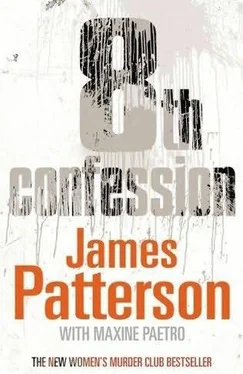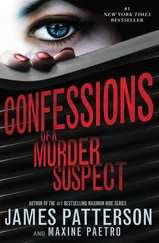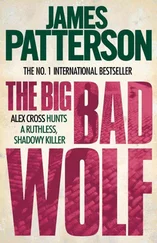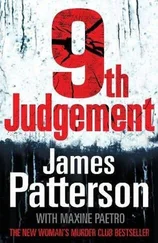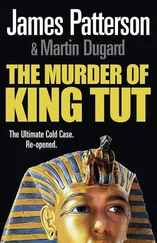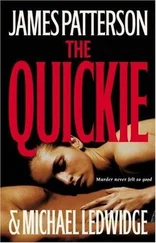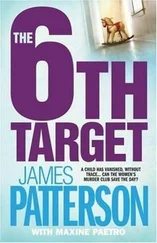“They named him Flora Jean,” Yuki sputtered. “Like you said, Claire, they took a baby boy and made him a girl! But he never felt like one, ever – because he wasn’t a girl. Oh my God. It’s so sick!”
“So he reversed the process when he was how old?” Claire asked.
“Started when he was twenty-six. After that, he went through about four or five years of hell.”
“Oh man. That poor guy,” I said.
Yuki lifted her teary eyes to mine. “I’m crazy about Doc, Lindsay. He’s sweet. He’s funny. He’s seen me as a real bitch and as a total wimp. He gets me – but how am I going to stop thinking of him as a guy who used to be a girl?”
“Aw, Yuki. Where did you leave things with him?”
“He said he’d call me over the weekend. That we’d go out to dinner next week and talk.”
“Doc cares about you,” I said. “He’s showing you how much he cares by telling you what happened. Giving you time.”
“I don’t know what to do,” Yuki choked out.
Cindy held Yuki and let her cry until Claire reached across the table and took Yuki’s hand.
“Sugar, take it easy on yourself. It seems complicated, but maybe it’s not. And nothing has to be decided right now.”
Yuki nodded, and then she started to cry again.
I GOT TO the squad room before eight on Monday morning and found a thick padded envelope on my desk. The routing slip showed that St. Jude had messengered it over from the Cold Case Division and had stamped the envelope URGENT, URGENT, URGENT.
I remembered now – McCorkle had called me, and I hadn’t called him back. I ripped open the envelope, dumped out a tattered detective’s notebook, found a note from McCorkle clipped to the front cover.
“ Boxer – check this out. This subject knew the last of the nineteen eighty-two snake victims and a few of the new ones. She’s expecting your call.”
I hoped “she” was a hot lead that hadn’t gone cold over the weekend, because right now, all we had on the “snake killer” was ugly press coverage and five dead bodies twiddling their thumbs in their graves.
Conklin wasn’t in, so I killed a few minutes in the coffee room, putting milk and sugar in the last inch of coffee sludge left over from the night shift.
When I returned to my desk, my partner was still absent, and I couldn’t wait for him any longer.
I opened the notebook to where a neon-green Post-it Note stuck between the pages pointed to a twenty-three-year-old interview with a socialite, Ginny Howsam Friedman.
I knew a few things about Ginny Friedman.
She was once married to a deputy mayor in the ’80s, now deceased, and was currently married to a top cardiologist. She was a patron of the arts and a gifted painter in her own right.
I scanned the cop’s scribbled notes and saw where McCorkle had underscored her phone number, which I dialed.
Friedman answered on the third ring and surprised me by saying, “I’m free if you come over now.”
I left a note on Conklin’s chair, then took my Explorer for a spin out to Friedman’s address in Pacific Heights.
Ginny Friedman’s pretty blue-and-white gingerbread- decked house was on Franklin Street, one of the blocks of fully restored Victorian houses that make San Francisco a visual wonder.
I walked up the steps and pressed the bell, and a lovely-looking gray-haired woman in her early seventies opened the door.
“Come in, Sergeant,” she said. “I’m so glad to meet you. What can I get you? Coffee or tea?”
MRS. FRIEDMAN AND I settled into a pair of wicker chairs on her back porch, and she began to tell me about the snake killings that had terrorized San Francisco ’s high society in 1982.
Friedman stirred her coffee, said, “There’s got to be a connection between those old killings and the recent ones.”
“We think so, too.”
“I hope I can help you,” Friedman said. “I told Lieutenant McCorkle that it was stinking horrible when those prominent people kept dying in eighty-two. Scary as hell. Keep in mind, we didn’t know why they died until Christopher Ross was found with that snake coiled up in his armpit.”
“And you knew Christopher Ross?”
“Very well. My first husband and I went out with him and his wife often. He was a very handsome guy. A thrill-seeker with an outgoing personality, and he was wealthy, of course. His gobs of money had gobs of money. Chris Ross had it all. And then he died.
“Some said it was poetic justice,” Friedman told me. “That he was a snake who was killed with one – but I’m getting ahead of myself.”
“Take your time,” I said. “I want to hear it all.”
Friedman nodded, said, “In nineteen eighty-two, I was teaching fifth-grade girls at the Katherine Delmar Burke School in Sea Cliff. You know it, I’m sure.”
I did. Sea Cliff was an A+ oceanside community, uncommonly beautiful, populated by the uncommonly wealthy.
“The young girls wore green plaid uniforms and did a maypole dance every year. Streamers and all.
“Sara Needleman and Isa Booth were both in my class in eighty-two. I still can’t believe that they’re dead! They had charmed lives. And when I knew them, they were both darling children. Look at this.”
Friedman handed me a small leather book with glassine pages filled with snapshots. She turned to the back page and pointed to stepped rows of ten- year-old girls in a class photo.
“There’s Isa. This is Sara. And this girl, poor thing, with the sad eyes. She was always the odd girl out,” Friedman said of a young girl with shoulder-length dark hair. The child looked familiar, but although my mind was on search, I couldn’t place her.
Friedman said, “She was Christopher Ross’s illegitimate daughter. Her mother was the Ross’s housekeeper, and Ross paid for his daughter’s schooling at Burke’s. I helped to get her admitted.
“The other girls all knew her circumstances, of course, and some of them were unkind. I said to her once, ‘Honey, what doesn’t kill you makes you stronger,’ and she seemed to take courage from that.
“And then Chris died, and his wife, Becky – who had previously looked the other way – fired Norma’s mother, cut her and the child off without a penny. Chris must’ve thought he’d live forever, and he hadn’t provided for them in his will. Anyway, poor Norma was dropped from the school.
“And you know, I was right. It didn’t kill her, and I think it did make her stronger.”
I stared at the picture of the sad-eyed little girl – and suddenly the pieces locked into place with such force I could almost hear them clang. When I met Norma Johnson, her hair was caramel-blond and she was thirty-three years old.
Friedman said, “Last time I spoke with Norma was about ten years ago. She had created a little gofer business for herself, used her old contacts to get work.
“She let down her hair with me over a nice lunch in Fort Mason, and I’ll tell you, Sergeant, and it gives me no pleasure to say it, Norma was very bitter.
“You know what those rich girls called their old school chum? They called her ‘Pet Girl.’ ”
CONKLIN TOOK A CHAIR in Jacobi’s office, but I was so revved up, I couldn’t sit. I was also freaking out. We’d interviewed Norma Johnson twice, written her off as a suspect both times and kicked her.
“Am I missing the obvious?” Jacobi asked me. “Or are you?” His meaty hands were clasped together on his trash heap of a desktop.
“Maybe it’s me. What’s the obvious?”
“Did you consider that Ginny Friedman might be the doer? She not only admits to knowing one of the original victims, she knew half the current ones, too.”
Читать дальше
